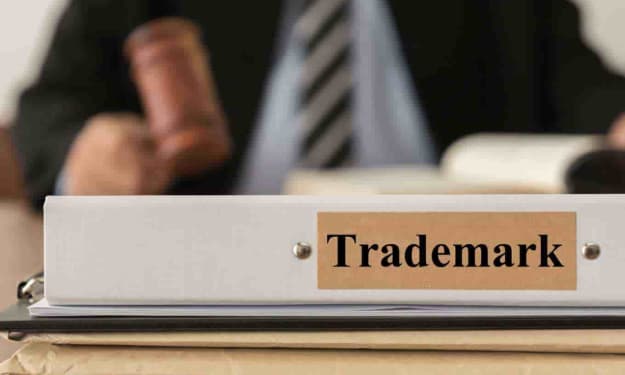
Have you ever wondered how important can “words” are in your life? Writing content is one powerful tool of expression. Expressing one’s thought in a fixed medium and conveying it to billions of people is not an easy task. It takes a lot of courage, time, and hard work to write content that the viewers would love to read. The journey of a content writer is worth appreciating. Be it a blog, write-up, essay, article, or even a poem; one cannot quantify the efforts put into it. What we read is the final output of all drafts, midnight oil burns, and multiple reviews.
From the above flow-chart, it is crystal clear that content generation is no less than rocket science. But, views do not understand the background work, criticize the work, or even sometimes just copy the work- reproduce it without giving credits to the original author. Legally, ethically, and consciously, it is not the right thing.
Can we do anything about it? Are we allowed to protect our write-ups? How can we claim exclusive ownership over the work and prevent others from using it? The answer to all the questions lies in one single word– “COPYRIGHT.”
The most common word used in the literary industry but underestimated a lot, Copyright is the one-stop solution to all your problems. Yes, you read it right- every author, content writer, and content creator should copyright their work without any second thought.
One point of contradiction in copyright is that the right to copyright over the work exists from the moment the work is created, so why put extra effort and money into registering? You will find the answer to this question at the end of this article. So, without any further ado, let us proceed with the title of our article.
1. Basics of Copyright Protection:
Indian Copyright Law works well for authors, writers, and content creators. The basic requirement for copyright protection is very simple- original, produced in a fixed tangible medium, and should involve a minimum degree of creativity. If your work has all these criteria, you can think about copyright registration. No matter if the work is handwritten or done on the computer, if you are able to produce it in a fixed format, the copyright is all yours.
2. Rights of a Writer:
Ah!! That is a rare English Wonder- “Rights of a Writer.” Every Writer/author/scriptwriter/publisher has a set of rights conferred upon them. They are the basic rights one gets over their work:
- Economic rights
- Moral rights
- Creative Common Rights
- Assignment and License Rights
- Other Rights
3. Scope of Protection:
Copyright Protection allows the authors or writers to control their work. They are allowed to display, produce, reproduce, protect and restrict others from using their work. It also allows them to use their work to bring out the derivative work. The law considers all derivative works to be the original work of the author.
4.Importance of Registration of Copyrights:
Coming back to the major dilemma every owner of the work faces is- Why should I register my copyright? Here are few reasons why you should consider registration:
- It acts as a public record of ownership: When the writer shares their work in some form, asks for a revision, uploads it on social media, ownership is a major issue. Having proof registration can solve some serious ownership concerns.
- It acts as a presumption of ownership: Law and Litigation run on the presumption that copyright ownership is on the person claiming to be the owner unless contrary proved. Copyright Registration helps the presumption be true by making it a concrete evidence or proof of ownership.
- International Registration: If you have to enforce your rights in foreign countries, you can’t go to Court without registration. For instance, in the US- Registration is mandatory for enforcement in the Court of Law.
- No Registration No Remedies: To claim civil and Criminal Remedies, Copyright Registration is important. Where there is no registration, no right or remedies can be claimed.
5. Understanding about Creative Common License:
6. Copyright Disclaimers:
Whenever any work is created and uploaded, it would be best practice to have the copyright disclaimer over the work to ensure that it belongs to the particular owner or author.
7. Fair-Use Mechanism:
The fair use of a copyrighted work, including the use by the reproduction of the copies of the phone records or by any other means which are specified by each section, for the sole purpose of criticism, comment, news reporting, teaching, which also include multiple copies for classroom education, scholarship, or research, which are also not an infringement of the copyrights law. Determining whether the work is made based on any particular case is a fair use of the factor to be considered.
- The purpose and characters of use which includes whether such use is for a commercial purpose or is for a non-profitable or an educational purposes;
- At what nature the copyrighted work comes under and if they infringe is also used in a form to make a profit or belittle the original author or producer;
- The amount and substantiality of the portion which is used concerning the copyrighted work as the whole;
- The effective use upon the potential market for or the value of the copyrighted work.
- Unfortunately, there is no clear formula that you can use to determine the boundaries of fair use. Instead, a court will weigh these four factors holistically to determine whether the use in question is fair. To assess whether your use of another’s copyrighted work will be permitted, you will need an understanding of why fair use applies and how courts interpret each part of the test.
8. Derivative Works are Original Works:
The copyright in a derivative work will only extend to the adapter’s material and does not affect the copyright protection given to the original material. In a landmark case, Blackwood v. Parasuraman, AIR 1959 Madras 410, the Court held that translation of an original literary work would itself be considered as a literary work.
Therefore, any translations, modification, or adaptation of any original work with material alterations that depict the author’s hard work, intellectuals, and time investment can be considered original work.
This was made clear in the case of Interlog A.G v Tyco Industries Limited- where the Court held that adding some elements of material alterations that suffice to content would be considered original work.
However, the work must be more than the minimal change from the original work. So it would be best if you were sure that the translation you ought to do should be material (more than required) in nature and not blur or minimal. The translation and sound recording should be unique and original work of yours and not taken from somewhere else.
It is a clear-cut rule established by the Court in the case of Archbold vs. Sweet, that while editing, if any errors and mistakes occur and the same is published, it will hamper the right of integrity of the original author.
The Bottom Line:
Be it Blogs, Articles, Essay or any write-up, one has to put a lot of creativity into developing a masterpiece. While the entire focus rests on creating an amazing work to read and easy to understand, one should not forget the importance of copyright guidelines. Given above are 10 things every writer should know, understand and keep in mind while writing a blog. Also, do not forget to Copyright your work.
For more info contact us: unimarkslegal.com






Comments
There are no comments for this story
Be the first to respond and start the conversation.